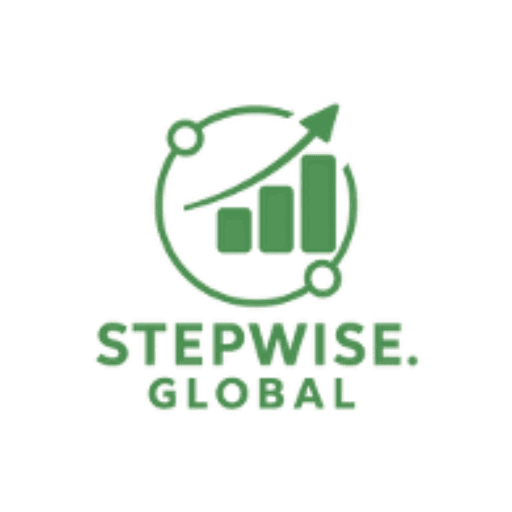Strategic Leadership: Exclusive Wins in a Risky World
Kalle reflects on the World’s situation
We do not need perfect foresight to act with strategic sustainable development in mind. Whether humanity ultimately averts catastrophe or not, enlightened, systemic, and systematic leadership—what the FSSD codifies—delivers real advantages to every organization, immediately and throughout its journey. The common, short-sighted objection is that such an approach only makes sense if the endgame is a fully sustainable global civilization. That is both incorrect and dangerous. Strategic thinking grounded in the boundary conditions of sustainability pays off now, for any single organization, while also increasing the odds of broader societal success.
Today’s darkness is visible. Mass media fixates on the wars most salient to the industrialized West. Beyond the wars’ direct violations of all eight sustainability boundary conditions, this narrow focus crowds out discussion of even larger systemic threats tied to un-sustainability. Public and political discourse often treats the greatest long-term risk to civilization as a side note. Many of us warned of this shift in attention when the Russia–Ukraine war first broke out; the prediction has proved tragically accurate.
The more subtle danger is paralysis—leaders feeling resignation or defeatism because they think wrongly about strategy. The flawed logic goes like this: if we can’t be sure the world will achieve sustainability at scale, then it’s unwise to plan for it; better to wait for the next summit and only move when everyone else is forced to. This is an error cascade that leads to inaction precisely when deliberate action can deliver competitive advantage and societal benefit. It conflates uncertainty about the endgame with certainty about the benefits of moving in the right direction now.
A Titanic analogy clarifies the point. Even if the ship were destined to hit the iceberg, leadership would still matter at every moment of the voyage. Strategic leaders onboard would improve their position regardless of the final outcome: better cabins, safer passage, more options. Likewise, organizational leaders who think and act strategically—consciously or intuitively aligned with FSSD—gain advantages all along the journey: stronger bottom lines, resilience, reputational lift, and a better seat at the table when change accelerates.
How? Consider three compounding dynamics that reward those who align with scientifically grounded boundary conditions and the “funnel” reality of shrinking ecological and social room to maneuver:
– Systematically reduced costs. Decisions that ignore sustainability constraints inevitably incur rising costs—energy, materials, waste handling, and the steep penalties of eroding social trust. As the funnel narrows, these costs compound. Strategic leaders preempt them by redesigning products, services, and operations to align with long-term viability.
– Growing markets for survival solutions. Demand for scalable answers—clean energy, circular materials, resilient value chains—expands as constraints tighten, regardless of opinion or politics. Strategic leaders recognize the inevitability of these markets and develop offerings that can scale within the funnel.
– Smarter revenue growth. Stepwise innovation—sequenced so each move builds toward solutions that remain viable as constraints tighten—creates durable margins. Move too fast and ROI suffers; move too slow and you surrender ground to competitors with better pacing and clearer direction. The discipline is to avoid tactical one-offs that don’t form part of a strategic arc toward scalability.
Strategic leadership is not about betting that civilization will definitely avoid the iceberg. It’s about securing superior options in any scenario. Even if we cannot be sure that enough FSSD-informed leaders will reach the bridge in time to change course for all, we can be certain that those who practice rigorous, strategic sustainable development will travel first class all the way—better margins, better risk management, better reputation. Those who delay will find themselves descending through travel classes, eventually confined to the propeller room.
History also shows that paradigm shifts often happen faster than anyone expects. Funnel dynamics are accelerating a wave of change that is already visible: electrified transport; advanced energy efficiency and storage; forestry and agriculture planned as integrated landscapes with lighter machinery and smaller clear-cuts; value chains that manage green spaces and grow food more sustainably; hydrogen for ore reduction; business models driving near-total metal recycling; and cooperative global initiatives tackling shared constraints. These examples, often born of enlightened self-interest aligned with FSSD, alter the discourse because they work—technically, economically, and reputationally. The more they scale, the more they pull entire sectors toward the new baseline.
Strategic pacing is crucial. Leaders should sequence investments so each innovation both pays back and opens the next door. This is where a shared operating logic—the ABCD method in the funnel—helps teams think from first principles, backcast from a rigorous definition of success, and chart practical steps forward. It’s not a leap of faith; it’s disciplined navigation.
H2: Why strategic sustainable development pays off now
– It reduces exposure to rising input and compliance costs by aligning operations with boundary conditions that will only tighten.
– It positions companies where demand is headed, not where it has been.
– It clarifies innovation choices so resources flow to initiatives that scale with the future rather than stall in the present.
– It builds trust with customers, employees, investors, and regulators by making credible progress rather than rhetorical promises.
H3: From paralysis to progress
Waiting for perfect alignment at the global level is a recipe for being left behind. The more constructive path is to take agency: define a vision consistent with sustainability boundary conditions, backcast to today, map strategic steps, and move at a pace that compounds learning and advantage. Whether or not every actor follows suit in time, your organization benefits. And by acting, you contribute to the network effects—through value chains, success stories, and informed publics—that make broader change more likely.
H3: The role of platforms and AI
Tools that codify sound strategy can multiply impact. An AI-assisted, FSSD-informed platform can help leaders analyze value chains, simulate funnel dynamics, sequence innovations, and communicate progress in ways that build internal alignment and external credibility. As these tools mature, they can help spread the operating system faster—precisely what’s needed to bend the curve at civilization scale.
Conclusion: strategic sustainable development is enlightened self-interest, not idealism. The ship’s fate may be uncertain, but the benefits of steering wisely are not. Think clearly. Backcast rigorously. Pace your innovations. Measure what matters. Communicate with integrity. In any plausible future, organizations that practice strategic sustainable development will find themselves on higher decks—with better views, better options, and better outcomes—while helping the rest of the fleet change course in time.

